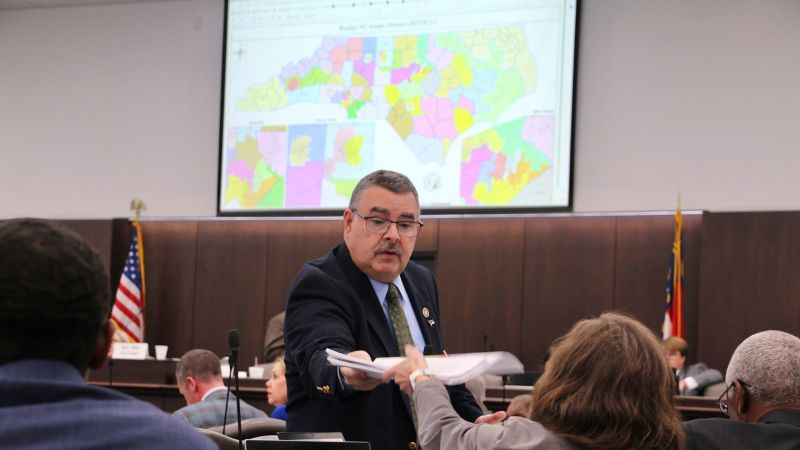A federal lawsuit filed Tuesday alleges that Republicans who control the North Carolina legislature drew discriminatory maps for congressional and state legislative districts by diluting the power of the state’s Black voters.
The lawsuit from the NAACP’s state chapter, Common Cause and several individual Black voters is the latest to challenge new districts enacted in late October that cement Republican power in the swing state.
But the outcome of this litigation will not affect the partisan balance in the US House of Representatives after next year’s congressional contests because the lawsuit is not challenging the district lines that will be used in 2024. The candidate filing deadline for next year’s elections expired December 15.
Instead, the plaintiffs say they are hoping for new maps ahead of the 2026 election.
The complaint alleges that Republican lawmakers, who hold a supermajority in the North Carolina General Assembly, “targeted Black voting precincts with surgical precision throughout the state … to achieve preferred district lines that diminish Black voters’ ability to elect candidates of their choice at all levels of government.”
In a statement, Deborah Maxwell, president of the NAACP’s North Carolina State Conference, said lawmakers knowingly sought to erode “the power of Black voters, power that was fought for over decades of violent discrimination and suffering.”
North Carolina House Speaker Tim Moore and Senate leader Phil Berger, the legislature’s top two Republicans, did not immediately respond to requests for comment. During the recently concluded redistricting process, Republicans who oversaw the map drawing insisted that they never consulted data about race in configuring the new districts.
The congressional map could help Republicans pick up at least three US House seats after next year’s elections. The GOP currently holds a razor-thin majority in the chamber, and redistricting skirmishes around the country could shape which party gains the upper hand next year.
Three House Democrats from North Carolina, whose districts were significantly reshaped by the state legislature, have already announced that they will not seek reelection next year. Moore is running for Congress from one of those newly redrawn districts.
Currently, North Carolina’s congressional delegation is split 7-7 between the political parties under temporary lines imposed by a court that applied only to the 2022 election.
A separate lawsuit filed earlier this month asks a federal court to grant an injunction and block the use of the new congressional map for next year’s elections on grounds that it “intentionally discriminates against minority voters” in violation of the US Constitution.
Read the full article here
